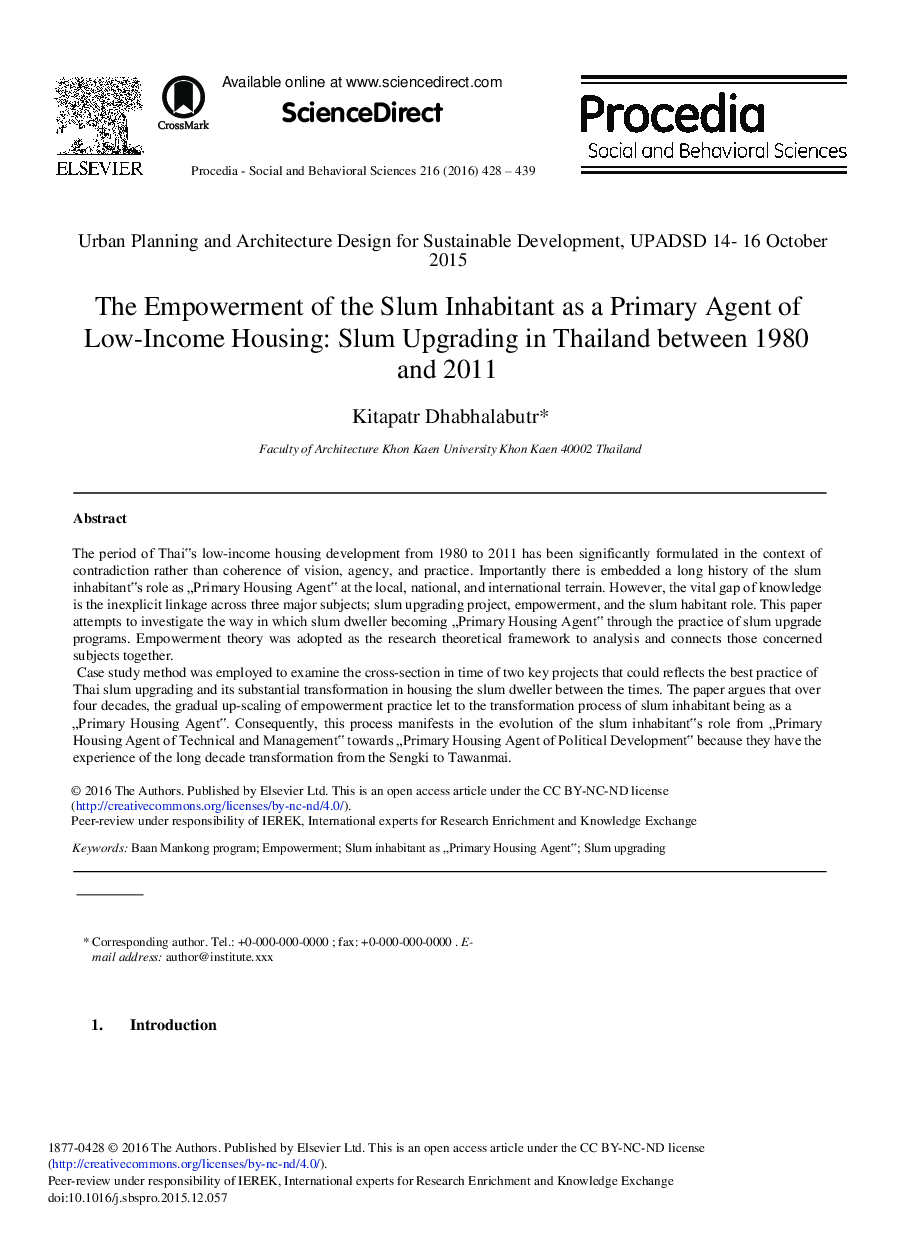| Article ID | Journal | Published Year | Pages | File Type |
|---|---|---|---|---|
| 1108750 | Procedia - Social and Behavioral Sciences | 2016 | 12 Pages |
The period of Thai”s low-income housing development from 1980 to 2011 has been significantly formulated in the context of contradiction rather than coherence of vision, agency, and practice. Importantly there is embedded a long history of the slum inhabitant”s role as” Primary Housing Agent” at the local, national, and international terrain. However, the vital gap of knowledge is the inexplicit linkage across three major subjects; slum upgrading project, empowerment, and the slum habitant role. This paper attempts to investigate the way in which slum dweller becoming “Primary Housing Agent” through the practice of slum upgrade programs. Empowerment theory was adopted as the research theoretical framework to analysis and connects those concerned subjects together.Case study method was employed to examine the cross-section in time of two key projects that could reflects the best practice of Thai slum upgrading and its substantial transformation in housing the slum dweller between the times. The paper argues that over four decades, the gradual up-scaling of empowerment practice let to the transformation process of slum inhabitant being as a “Primary Housing Agent”. Consequently, this process manifests in the evolution of the slum inhabitant”s role from “Primary Housing Agent of Technical and Management” towards “Primary Housing Agent of Political Development” because they have the experience of the long decade transformation from the Sengki to Tawanmai.
